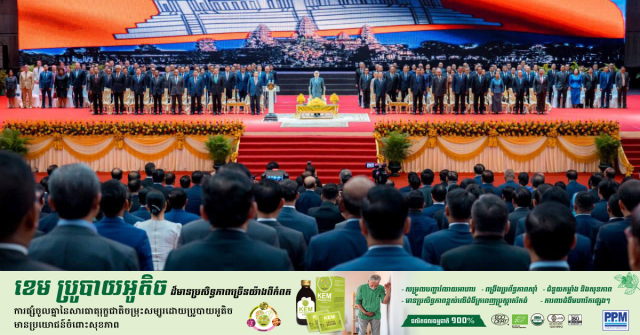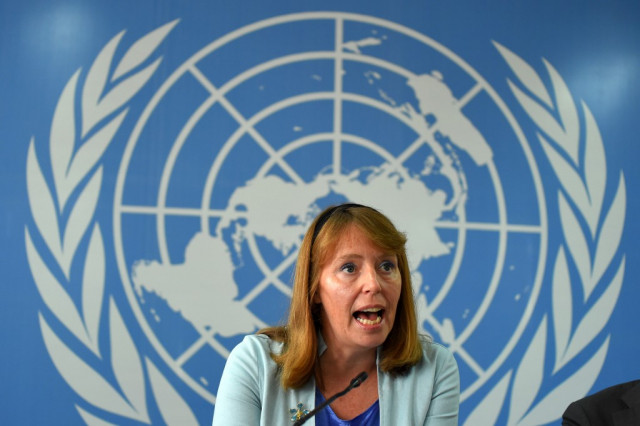Constitution Marks 30 Years but Keeps Evolving

- By Teng Yalirozy
- October 6, 2023 2:24 PM
PHNOM PENH – Cambodia has celebrated the 30th anniversary of its Constitution, noting significant achievements while some issues still face the country.
An event to mark the occasion was presided over by King Norodom Sihamoni and attended by President of the Senate Say Chhum, Prime Minister Hun Manet, as well as national and international diplomats, especially former United Nations Transitional Authority in Cambodia members.
Promulgated on Sept. 24, 1993, the Constitution was first drafted and adopted by parliamentarians elected in the May 1993 national elections, which were supervised by the United Nations as a result of the signing of the Paris Peace Agreement in 1991.
President of the Constitutional Council Im Chhun Lim said that with the Constitution in place, the country had maintained its constitutional monarchy and liberal multi-party democracy.
“Cambodian citizens are the owners who decide the fate of the country,” he said during the event. “Their power is exercised through the National Assembly, Senate, the government and the tribunal.”
Im Chhun Lim said Cambodia had become a country with the rule of law, with the government able to protect independence, sovereignty and territorial integrity.
“The Constitutional Council ensures the conformity of the Constitution which is the foundation of the firm rule of law,” he said.
The Constitution had been amended in 2004 to address political stalemate and ensure the normal functioning of national institutions.
Despite the improved state of the country, some problems surfaced which needed to be addressed.
Im Chhun Lim said constant explanations were needed for people to understand changes in the Constitution and laws brought about by evolving diverse global cultures.
Political, economic and legal evolution was rapid while the citizens lacked knowledge about the power of their rights and how to exercise them in the tribunal, which created a social justice gap, he said.
King Norodom Sihamoni said that under the Constitution, national institutions would continue to fulfil their duties to ensure the development of the nation to achieve the national development goals of 2030 and 2050.
By 2030 and 2050, respectively, Cambodia aims to become a higher-middle-income and high-income nation.
The Constitution consists of 17 chapters and 160 articles. These chapters deal with sovereignty, the King, the rights and duties of the Cambodian people, the political system, the economy, education, culture and society, the National Assembly, the Senate, the joint meeting of the National Assembly and the Senate, the Royal Government, the judiciary, the Constitutional Council, administration, the National Congress, and the power of reviewing and amending the Constitution.
It has undergone 10 amendments, which took place in 1994, 1999, 2001, 2005, 2006, 2008, 2014, 2019, 2021 and 2022.















